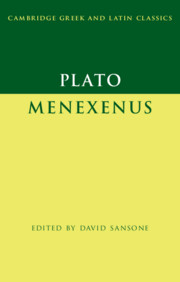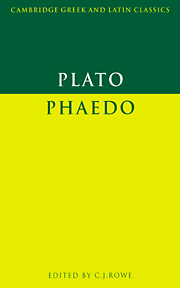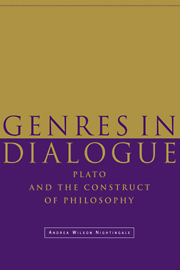Plato: Menexenus
Plato challenges his readers by depicting an elderly Socrates as an enthusiastic student of rhetoric who has learned from his teacher Aspasia to recite an inspiring funeral oration, an oration that conspicuously refers to events occurring after the deaths of Socrates and Aspasia, an oration that Aspasia, as a woman and a non-Athenian, was not eligible to deliver over the Athenians who died in war. This commentary, the first in English in over 100 years, assists the modern reader in confronting Plato's challenge. The Introduction sets the dialogue in the context of the traditional Athenian funeral oration and of Plato's ongoing critique of contemporary rhetoric. The Commentary, which is well suited to the needs and interests of intermediate students of Classical Greek, provides guidance on grammatical and historical matters, while allowing the student to appreciate Plato's mastery of Greek prose style and critique of democratic ideology.
- Integrates literary, rhetorical, and historical discussion and comments in order to show how Plato uses rhetorical means to misrepresent and distort historical reality
- Provides grammatical help for students as well as introducing techniques of discourse analysis
- Helps students appreciate the radically divergent interpretations of the text proposed by scholars
Reviews & endorsements
'Sansone's Menexenus constitutes an intelligent, learned, and welcome attempt to take a dialogue often considered peripheral and return it to the center of Plato's philosophical concerns. In this as in other ways, it succeeds admirably.' Geoff Bakewell, Bryn Mawr Classical Review
Product details
August 2020Paperback
9781108730563
202 pages
216 × 137 × 11 mm
0.26kg
Available
Table of Contents
- Introduction
- 1. The Athenian state funeral
- 2. The epitaphios logos
- 3. The Menexenus of Plato
- A note on the presentation of the text
- Text
- Commentary
- Bibliography.





